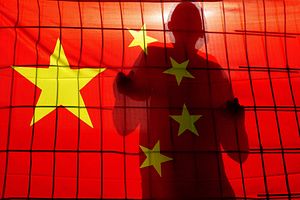One month ago Chinese President Xi Jinping launched his most coordinated effort yet to extinguish the human rights movement in China. In July, more than 200 human rights defenders (HRDs) were detained, including more than 100 human rights lawyers. All are key figures in the movement for justice, transparency and accountability in China. They are well-organized, well-educated and well-used to intimidation by the authorities.
Xi Jinping’s government has imprisoned leading lawyers, journalists, activists and academics – those with the reach and authority to influence minds – for defending the rights of others and exposing injustice. NGOs have also been targeted, especially those working on LGBT, HIV/AIDs, women’s rights, and labor rights issues, because they link and empower people across provinces and establish relationships with foreign NGOs and funders, who provide funding they cannot get in China.
In addition to mass detentions, government media outlets have launched a campaign vilifying the lawyers who remain in custody. Lawyer Wang Yu was labeled a “shrew” and a “hypocritical and false lawyer.” On July 9 she was taken from her home after her apartment door was pried open in the early hours of the morning and her electricity and internet connection cut. Her husband was also detained, as was her 16-year-old son, who was stopped at the airport as he was boarding a flight to Australia to continue his schooling. Another lawyer, and director of a law firm at which a number of the detained worked, Zhou Shifeng, was shown on national television confessing to “unlawful activities (which) have an impact on social stability.” Pre-trial televised confessions are a tactic to humiliate the human rights defenders and isolate them from their networks. Journalist Gao Yu was paraded on television before her trial in order to “confess her crimes.” At her trial, she retracted this confession, saying it was forced. She was subsequently sentenced to seven years. Now, police have promised leniency if she re-confesses.
The Chinese government characterizes the movement as a criminal conspiracy, trying to delegitimize human rights defenders who have gained public support through their work. The authorities cite fear of social instability as justification for their actions. However, this is merely a cover for social control to prevent the public from questioning the autocratic and often corrupt rule of the elite. To ensure “social cohesion,” the state targets HRDs like terrorists, with early morning raids on their homes, disappearances, interrogation of family members, and incommunicado detention. This, of course, is not new, but the coordinated nature of it is. When one considers that there are only a few hundred human rights lawyers in China, the startling scale of this crackdown becomes apparent. Though the majority have subsequently been released, around 25 HRDs, including 12 lawyers, remain in custody. Reportedly only one of the detained lawyers has been permitted to see his own defense lawyers. This is contrary to Chinese law (and there has been no shortage of human rights lawyers willing to represent the detained).
But intimidation and violence have not worked. Despite the huge personal cost, these lawyers have remained steadfast in their commitment to their human rights activities. As the repression against lawyers has worsened, since 2012 when Xi Jinping assumed power, so the number of human rights lawyers practicing in the country has increased.
Since 2012, Xi Jinping has repeatedly emphasized the importance of strengthening the rule of law in the country. In what purports to be a move towards democratic reform, he has instructed officials to swear allegiance to the Constitution (in which freedoms of speech, association, and the press are all guaranteed) and is pressing ahead with judicial reform to put more distance between the courts and the Party. Yet all are not equal under the law in Xi’s China. The treatment of HRDs makes a mockery of claims that China is a country with rule of law.
This systematic assault on civil society has not done any damage to China’s standing on the world stage. On July 31, Beijing was granted the right to host the 2022 Winter Olympics. In September this year China will co-host, with UN Women, a global summit in New York celebrating women’s rights and gender equality – unbelievably the same China which jailed five women’s right activists in March for protesting against sexual harassment. When the international community continues its “business as usual” approach to China, as its human rights situation markedly deteriorates, it does a huge disservice to those HRDs who suffer appalling abuses on a daily basis as they push forward genuine reform in the country. While the Chinese authorities may succeed in silencing some of their internal critics by jailing them, they should not be rewarded on the international stage. For Chinese HRDs, the lack of international reaction is as dispiriting as the locking of cell doors.
Andrew Anderson is the Deputy Director of Front Line Defenders, the International Foundation for the Protection of Human Rights Defenders, based in Dublin. Front Line Defenders is one of the foremost international organizations working on the security and protection of human rights defenders at risk.
































